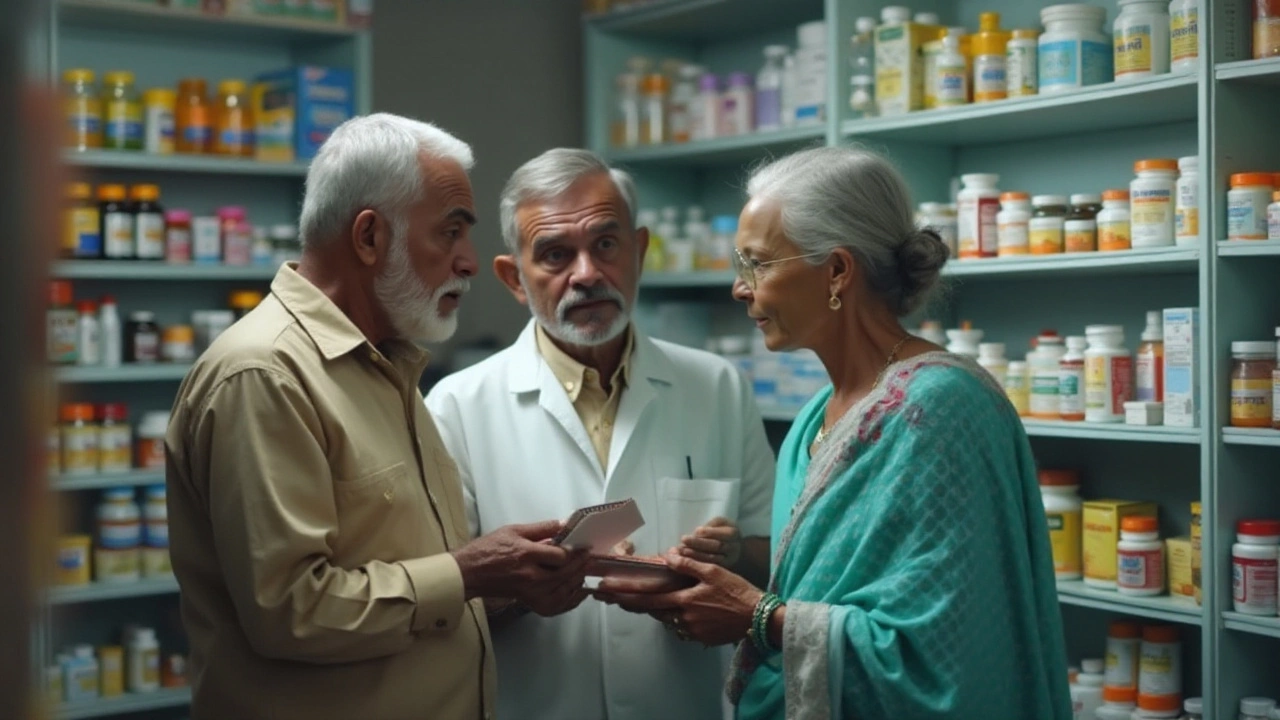Heart surgery is often viewed as a life-changing event, marking a critical juncture in an individual's journey towards improved health. Among the various types of heart surgeries, some stand out due to their complexity and the extensive recovery period they necessitate. Coronary artery bypass grafting, often referred to simply as bypass surgery, is one such procedure.
Recovery from these surgeries involves not only physical healing but also emotional resilience. It demands patience, structured care, and a supportive environment. Understanding the nature of the surgery and the body's healing process can equip patients and their families with the knowledge required to navigate this challenging period smoothly.
In this exploration, we will delve into the intricacies of heart surgeries, shedding light on the common hurdles faced during recovery. We will also offer practical tips and insights to aid in a more comfortable recuperation, emphasizing the importance of both physical wellness and mental health throughout the healing journey.
- Understanding Heart Surgeries
- Challenges in Recovery
- Tips for Recovery
- Emotional and Mental Well-being
Understanding Heart Surgeries
Heart surgeries are intricate procedures aimed at correcting various heart conditions that preserve and improve the quality of life. These procedures can range from minimally invasive techniques to more extensive operations. One of the most prevalent types of heart surgeries is coronary artery bypass grafting (CABG), where surgeons create an alternate path for blood to flow around a blocked coronary artery. This surgery is often recommended for patients with severe coronary artery disease (CAD) or those who have not found relief from medications or other treatments.
The intricacies of CABG involve harvesting a healthy blood vessel from the leg, arm, or chest and using it to bypass the blocked artery in the heart. Despite being a common procedure, the risks and complexities involved cannot be understated. The recovery can be long, and patients must commit to lifestyle changes to ensure the success of the surgery. According to the American Heart Association, about 200,000 CABG procedures are performed annually in the United States alone, illustrating the procedure's significance and demand.
Other heart surgeries include heart valve repair or replacement, which addresses malfunctioning valves that regulate blood flow through the heart. Valves may be repaired or completely replaced using artificial valves. Such surgeries significantly enhance hemodynamic stability, thereby alleviating symptoms like shortness of breath and fatigue. The advancements in medical technology have also introduced less invasive techniques, including transcatheter valve therapies, which offer quicker recovery times and less post-operative discomfort for patients ineligible for traditional open-heart surgery.
Treating cardiac arrhythmias is another critical aspect where procedures like pacemaker implantation or the Maze surgery come into play. Arrhythmias, such as atrial fibrillation, can severely impact a patient's life, potentially leading to complications like stroke. These surgeries aim to restore or aid in maintaining a normal heart rhythm, thereby preventing complications and improving life expectancy. As Dr. Subodh Verma, a leading cardiac surgeon, once expressed,
"The heart may be small in size, but the magnitude of its impact on our life is unparalleled. Every successful heart surgery not only extends life; it transforms it."
The complexity of heart surgeries broadly lies in the expertise required and the subsequent recovery process. Each surgery requires the heart to temporarily stop, which involves the use of a heart-lung machine to maintain circulation. This highlights the necessity for highly skilled cardiovascular teams equipped with state-of-the-art technology. The success of any heart surgery is pivotal on post-operative care, precise execution, and the patient's adherence to advised lifestyle changes. It is vital for patients and their families to comprehend these aspects deeply, as it not only aids in setting realistic expectations but also enhances post-operative outcomes.

Challenges in Recovery
Recovering from heart surgery is a multifaceted process that extends beyond mere physiological healing. Each patient embarks on a distinctive journey, marked by their own set of hurdles and triumphs. One of the most significant challenges faced is managing post-operative pain. Surgeons often employ techniques that temporarily disrupt bones, muscles, and nerves; thus, substantial discomfort is inevitable during the healing phase. Although medication alleviates some discomfort, patients frequently encounter periods of frustration as they strive to deal with prolonged pain sensations.
Another common challenge is the patient's limited mobility during the initial weeks. With energy levels critically low, even simple tasks such as walking short distances or climbing stairs can seem insurmountable. This reduction in activity can affect mental health, leading to feelings of isolation or helplessness. It is crucial for individuals to engage in careful and consistent physical activity, gradually increasing their stamina under the watchful eyes of their healthcare providers.
Moreover, the risk of post-operative complications, such as infections or blood clots, can dominate concerns during recovery. These threats necessitate rigorous adherence to prescribed routines, often causing stress and heightened vigilance. Patients and caregivers must be remarkably diligent in monitoring symptoms, thereby facilitating early intervention if complications arise. This ongoing vigilance is critical for maintaining cardiac health but can be mentally taxing.
Dr. Sarah Thomas, a noted cardiologist, speaks volumes on the subject: “Recovery is as much about mindset as it is about physical healing. The journey requires a robust support system to navigate the emotional valleys accompanying physical recovery.”
Finally, adjusting to lifestyle changes often presents a formidable challenge. Dietary modifications, integrating health monitoring devices, and forming new routines are part and parcel of sustaining progress. While these modifications are pivotal for avoiding further coronary issues, they demand concerted effort and discipline, which can be burdensome for patients unaccustomed to stringent health regimes. No two recoveries are identical, and while medical teams provide frameworks and support, embracing the unpredictable paths of healing is inherently challenging for both patients and their loved ones. Understanding and addressing these obstacles with patience can lead to a more fulfilling recovery experience.

Tips for Recovery
Embarking on the path to recovery after undergoing a significant heart surgery, like a coronary artery bypass surgery, requires a strategic approach and a supportive environment. Understanding the body's healing process is crucial. Initially, focusing on rest and allowing the body to adjust to the post-surgery state is paramount. It's common for patients to feel fatigued, which is perfectly natural. The key is to listen to your body, ensuring you get ample rest while also maintaining activity levels that are manageable but not taxing. Early days should involve gentle movements to improve circulation without exerting strain on the heart.
Keeping up with a balanced diet is another cornerstone of a successful recovery. Nutrient-rich foods play a critical role in healing by providing the body with essential vitamins and minerals. Prioritizing lean proteins, fresh fruits, and vegetables can significantly aid in tissue repair and strengthen your immune system. Moreover, staying hydrated is vital, as it helps in flushing out toxins and maintaining optimal body functions. Patients are often advised to avoid food high in sodium and saturated fats to reduce any undue pressure on the heart. Consider consulting with a nutritionist to tailor a diet plan that meets individual recovery needs.
Following surgery, adherence to prescribed medications is non-negotiable. These medications are often designed to manage pain and prevent any potential complications, such as blood clots or infections. It is crucial to take them as directed by your healthcare provider. Communication with your medical team is key, so don't hesitate to report any side effects or concerns. Tracking your medication schedule using a journal or an app can ensure that nothing is missed, contributing to a smoother recovery process.
As you progress through your recovery, gradually incorporating cardio exercises, as recommended by your physician, can significantly aid in restoring heart function and improving cardiovascular health. Regular, low-impact activities like walking are often encouraged. Over time, these activities can be increased in intensity and duration, always under medical guidance. Speak with your healthcare team about enrolling in a cardiac rehabilitation program, which not only provides structured exercise but also offers educational resources to improve cardiac health.
"Recovery is not a race; it’s a journey", advises Dr. Sanjay Gupta, a renowned cardiologist, highlighting the importance of patience and a steady, mindful approach to healing.

Emotional and Mental Well-being
Recovering from heart surgery is not just a physical challenge but also a significant emotional and mental journey. It's common for patients to experience a whirlwind of emotions, ranging from relief and gratitude to anxiety and depression. Understanding this emotional landscape is crucial, as the mind plays a powerful role in the healing process. The American Heart Association acknowledges that post-surgical depression affects nearly 20% of patients. These feelings can stem from a variety of sources, including the stress of hospitalization, uncertainty about the future, and the sudden lifestyle changes.
Patients often find themselves grappling with anxiety about whether their bodies are healing properly, fear of future cardiac events, and even existential thoughts about mortality. This internal dialogue can be taxing, and acknowledging these feelings is the first step in addressing them. One effective way to navigate these emotions is to maintain open communication with healthcare providers, family, and friends. Sharing fears and concerns can alleviate the burden, allowing patients to gain perspective and reassurance.
"The best bridge between despair and hope is a good night’s sleep," said by American author E. Joseph Cossman, encapsulates the importance of rest in mental recovery.
The role of sleep cannot be overstated; restorative rest contributes significantly to both physical healing and emotional stability. Additionally, activities such as meditation and yoga, which emphasize mindful breathing and physical relaxation, can be valuable tools. Incorporating these practices into daily routines helps in reducing stress levels, improving focus, and fostering a sense of calm. With guidance, patients can slowly build a toolkit that supports their mental health, which is integral to the holistic healing journey.
Cultivating a Supportive Environment
Family and social support systems play a pivotal role in the emotional recovery of heart surgery patients. Encouragement from loved ones not only uplifts spirits but also provides the practical help needed during recovery. Simple acts of kindness, such as preparing meals or accompanying the patient on short walks, enhance bonding and ease daily stresses. Encouraging patients to join cardiac support groups can be beneficial, offering a community where they can share experiences and advice.In many cases, professional psychological support may be advisable. Psychologists or counselors can offer strategies to manage stress, anxiety, and depression. Another practical step is helping the patient set realistic, achievable goals. These could be small, such as dressing independently, or larger, like resuming a favorite hobby. By acknowledging each success, no matter how minor, patients regain confidence and motivation.
In conclusion, caring for the emotional health of heart surgery patients is as vital as tending to their physical needs. It’s a complex journey that requires sensitivity, patience, and a multidisciplinary approach. By fostering an environment of understanding and support, patients can achieve a balanced recovery, ultimately leading to a healthier, fulfilling life post-surgery. Remember, recovery is not a race, but a personal journey that unfolds step by step.





